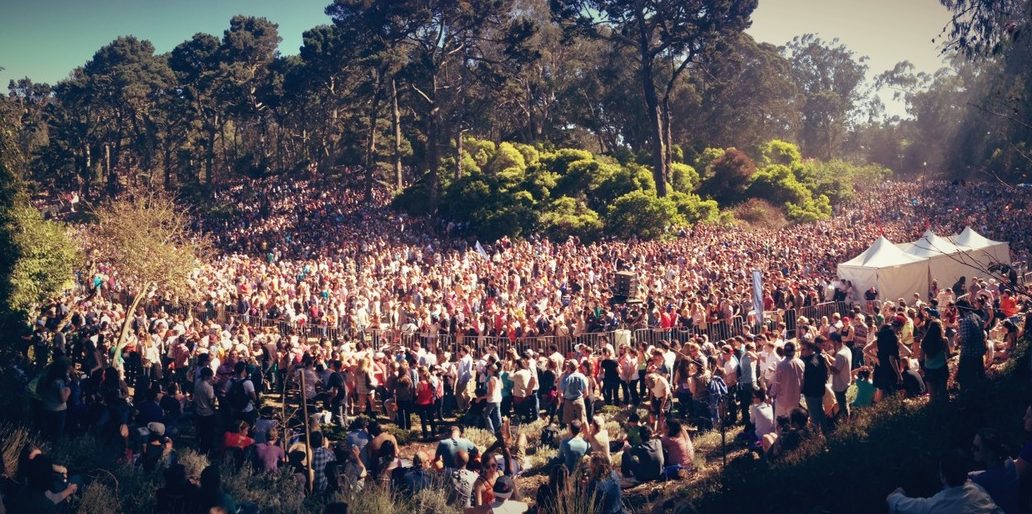In an Uber from San Francisco’s North Beach to its Golden Gate Park I met an incredibly personable driver and two middle-aged women, dressed in a variety of colors and patterns with patched jeans, who were also attending SF’s annual Hardly Strictly Bluegrass concert that afternoon. As they reapplied their lipsticks and fluffed their brown, full heads of hair, the similar-looking Beth and Victoria humbly bragged to me about who they were off to see that afternoon: “We’re on the ‘Family & Friends’ list with Boz Scaggs. I have been riding horses with his wife for years. We’re excited, you know, especially because it’s this particular festival and he’s such a musician’s musician.”
Holding in my inner geek, hiding behind a stranger’s mystique, I expressed controlled excitement for this marvelous coincidence. And I asked for advice and their opinion on the festival because this was my first time attending the free fall festival.
“Well do you know the story?” asked Beth as we exited Robyn’s Uber and into the pot-filled festival air. “If you don’t know the story, I don’t think you can fully appreciate the awesomeness of this event.”
Before splitting from the side of my new friends — they were headed right for Roseanne Cash and I was exiting left for The California Honeydrops — Beth and Victoria gave me the story of one of San Francisco’s greatest musical traditions.
Hardly Strictly Bluegrass is an annual free and non-commercial music festival that has existed since 2001. Over a decade ago a San Francisco venture capitalist, Warren Hellman, decided that he wanted to give back to the city in a way he felt most connected to, and in a way he felt most fit: a free, self-subsidized annual bluegrass concert. Hellman’s goal was to create a non-commercial and entirely free festival experience that he and his posthumous trusts would pay for as long as sustainably possible.
Who is Warren Hellman? F. Warren Hellman is (officially) an American private equity investor and co-founder of Hellman & Friedman, a multi-billion-dollar private equity firm. He was an early-stage investor to SanDisk and Apple. Hellman was present for the early beginnings of what would become the “dot.com” era. Hellman was the earliest investors to all of the technology that supports our day-to-day, technology-based lives. He invested and supported those advancements, the ones that both gave and took, but kept giving ever so unconditionally to the musically-inclined ones as well.
For years, acts and musicians have gathered together at this event. They are all easily teased, following the massive herds of San Franciscans that gather for this purposefully free, usually sunny September event. Hellman died in 2011 following complications arising from his leukemia treatments. But the legacy that he left, and the legalities that support it, will keep Hardly Strictly Bluegrass a strong, everlasting and joyful part of the craved San Francisco for years to come.




